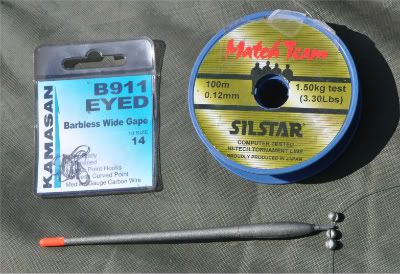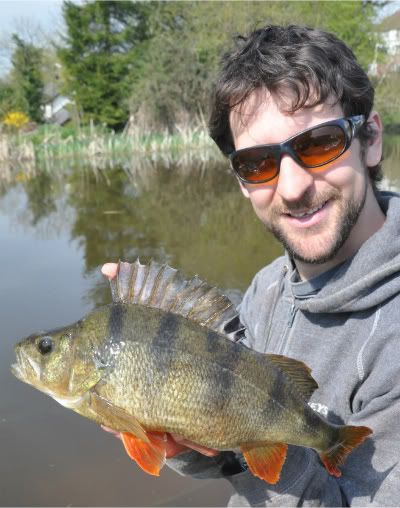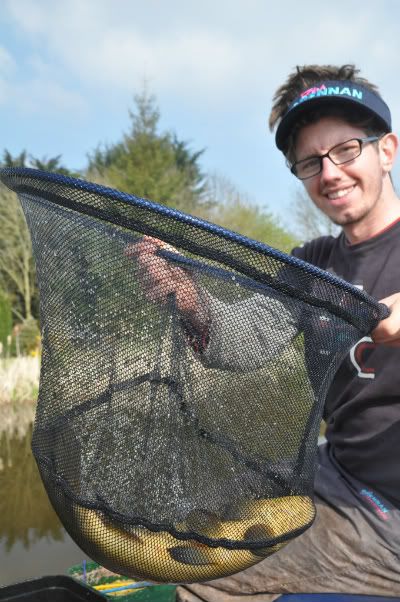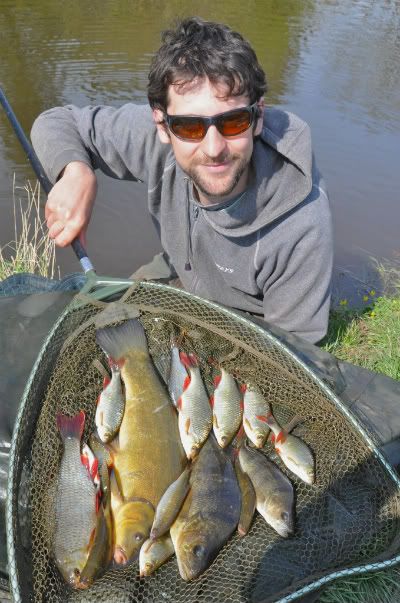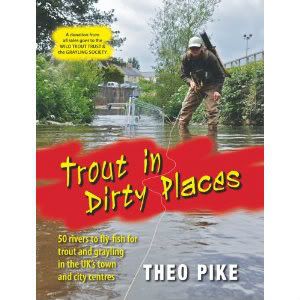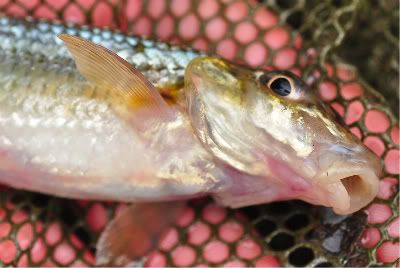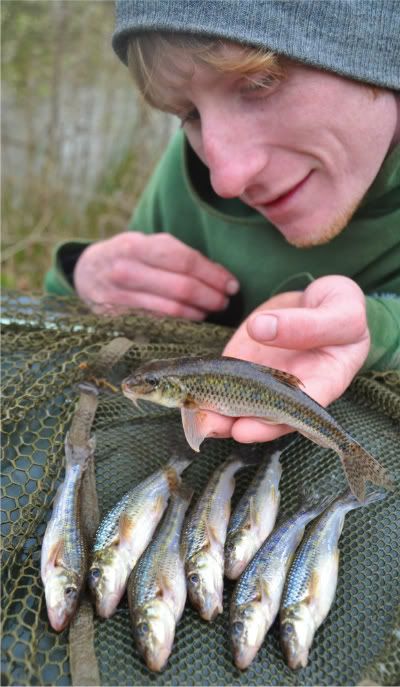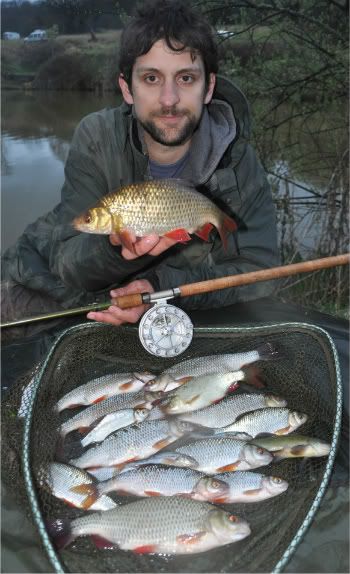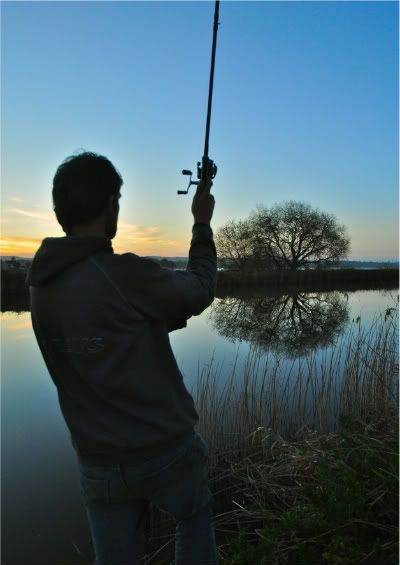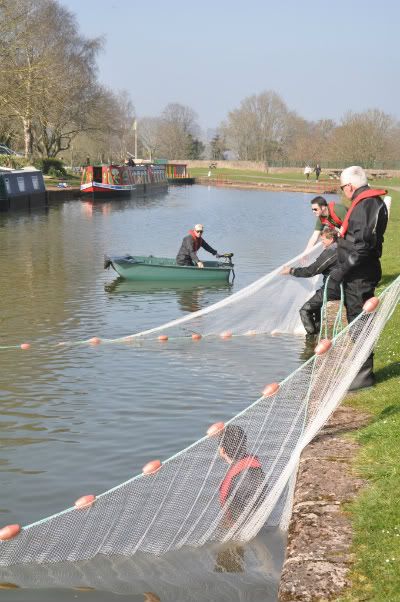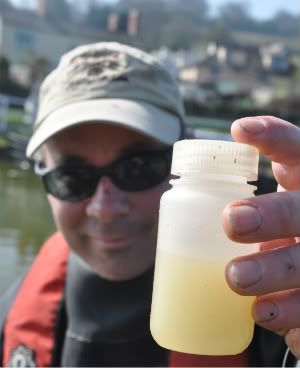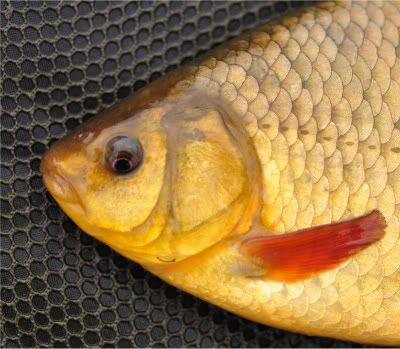
There's a lot to love about crucian carp. You've all heard the cliches- the naff "bars of gold" descriptions, which is why I wanted to start this blog with a simple picture of one of these unique fish. They're cheeky, dainty mouthed creatures- or at least the little Devon runts I'm used to are. At Marsh Farm however, they take on a different character altogether.
On arrival, conditions looked more suited to rounding up animals and building a sodding ark than spring crucian fishing. After about an hour without a sniff I was already steeling myself for a long, damp wait when the tip flashed under. The fight was funny- a circling, almost fluttering feeling through the blank. After seeing a rounded, yellow-gold fish roll, I knew it was a crucian- a big one!
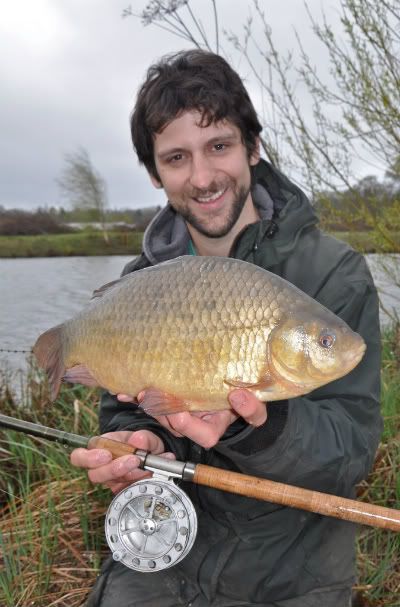
Bloody hell, it looked big. Over three pounds? The scales settled on 3lbs 7oz exactly and I approached something approaching delirium. "It's like a crucian, only bigger!" were my exact words I think.
With the pressure well and truly off, it was time to party. The weather was horrible, but by gently yet regularly feeding two lines, the bites slowly increased. Tench arrived too, like this thunderous Tinca just three ounces shy of six pounds.
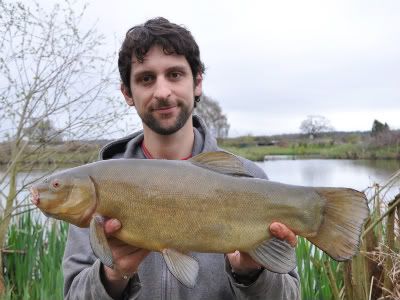
Now, any of you who know me well will also know I am to the world of specimen hunting what Emile Heskey is to quality finishing. I find multiple rod fishing using up excessive amounts of time and bait is not only boring, but quite soulless. I could get used to this "ultra light" specimen fishing however, with one rod, fine presentation and careful feeding. For perch, roach, rudd and crucians you can't beat a bit of classic, light float fishing with baits like worm, caster, hemp and pellet. I love a long rod for this, a 15ft Hardy Marksman to be precise, along with a centre pin and fine pole float set up.
It takes me back to my match fishing days in fact, and I always learn from anglers like my pal Russ Hilton, whose pole fishing skills seemed tailor made for the fishery. Any fool can pile in bait and sit on three rods- it takes real skill to coax a peg to life and build a mixed net. I'm not sure I've ever witnessed one angler slay a swim for so many tench as Russ on wednesday afternoon. Even with the fishery insisting we emptied keep nets at four hourly intervals, there were some impressive bags. Russell also added his own specimen crucians, taking two over three pounds like this cracker:
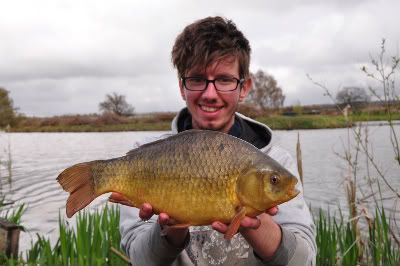
Some glowing crucian pics don't tell the whole story however. Like the 4am departure from Exeter, or sheltering for dear life under my father's green 1970's umbrella, a piece of kit older than I am. And then there are the fish. Crucians are wily things at the best of times- but old, cagey fish well accustomed to fishing pressure are even more so. A lot of them seemed to be "one hit wonders" -a quick dip or lift on the float, a missed strike and a long wait until the next knock. But I ramble; and I'm saving all the other twists and turns for an Angling Times special on this delightful species.
One last twist in the tale could be yet to come however. When the rain finally abated, we noticed several good crucians roll on the surface- and one or two gulping. We also spotted dozens of hatching buzzers. Shucks like this littered the surface at one point.
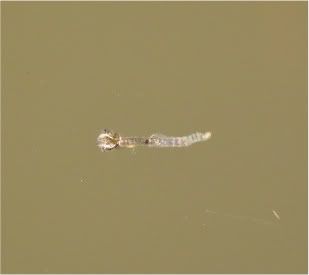
Could this be a rare recipe for crucians on emerged style buzzers or dry flies? My instincts tell me it's possible- although perhaps more tenable on a clearer fishery. Perhaps next time! I also wanted to thank all regular followers and friends for their recent support. I've been absolutely blown away by the response to "Flyfishing for Coarse Fish"- with orders coming in from as far afield as Finland and Canada. I'm already running out of first edition copies in fact, so if any of you had your heart set on a signed copy do give me a shout (or an email at info@dgfishing.co.uk).
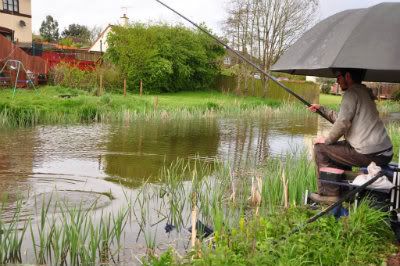 The downpour continues this week. A nightmare keeping the camera dry, but the fishing has been really interesting with both bait and fly. I've been itching to find the canals clear for some fly sport, but to no avail just yet. I might be a bit of a romantic, but there's little point casting flies into chocolate coloured water- and some old school bait tactics were just the trick with fellow canal fan Russ Hilton.
Using casters on the Grand Western, we found some formidable bream. The old stager I caught wasn't the prettiest, but awesomely dark and ancient looking. Being a male fish bang on 6lbs, this one was probably at least 15 years old.
The downpour continues this week. A nightmare keeping the camera dry, but the fishing has been really interesting with both bait and fly. I've been itching to find the canals clear for some fly sport, but to no avail just yet. I might be a bit of a romantic, but there's little point casting flies into chocolate coloured water- and some old school bait tactics were just the trick with fellow canal fan Russ Hilton.
Using casters on the Grand Western, we found some formidable bream. The old stager I caught wasn't the prettiest, but awesomely dark and ancient looking. Being a male fish bang on 6lbs, this one was probably at least 15 years old.
 Russ did even better with the pole, taking a bream hat trick for a combined weight in excess of 15lbs! They fight more like tench than the usual sleepy old timers here too- just look at that long tail fin and you get an idea. One of the finest bream I've ever laid eyes on:
Russ did even better with the pole, taking a bream hat trick for a combined weight in excess of 15lbs! They fight more like tench than the usual sleepy old timers here too- just look at that long tail fin and you get an idea. One of the finest bream I've ever laid eyes on:
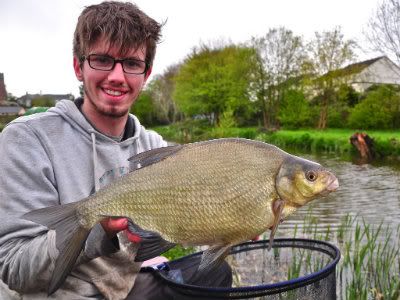 The rivers are looking muddy too, but I still got my fly fix at Bratton Water near Barnstaple. A pretty water as it happens. Lacking the vast turnover of the really busy fisheries, the rainbows and browns here get well acclimatised and really key in to natural food. We saw a few sedges and buzzers hatching- including a real beast of a fly that a trout swirled at and missed twice. Ian Nadin was first to catch and the fish he took was spooned to reveal loads of caddis. My dad also made it out and was soon into a fish while I was busy missing them:
The rivers are looking muddy too, but I still got my fly fix at Bratton Water near Barnstaple. A pretty water as it happens. Lacking the vast turnover of the really busy fisheries, the rainbows and browns here get well acclimatised and really key in to natural food. We saw a few sedges and buzzers hatching- including a real beast of a fly that a trout swirled at and missed twice. Ian Nadin was first to catch and the fish he took was spooned to reveal loads of caddis. My dad also made it out and was soon into a fish while I was busy missing them:
 Strange really, you go through the card and look for that killer fly- and in the end it's one of the simplest buzzers in your box that does the damage. I had my whole three fish bad all on buzzers fished across the breeze. Rocket powered fish they were too- and not bad with mustard sauce later on!
Strange really, you go through the card and look for that killer fly- and in the end it's one of the simplest buzzers in your box that does the damage. I had my whole three fish bad all on buzzers fished across the breeze. Rocket powered fish they were too- and not bad with mustard sauce later on!
 So, rain has foiled one or two fly fishing plans, but you can always spend a rainy day at the vice. My arsenal for the season is already looking really varied. First up, I've been tying loch style flies for a short break to Scotland coming up:
So, rain has foiled one or two fly fishing plans, but you can always spend a rainy day at the vice. My arsenal for the season is already looking really varied. First up, I've been tying loch style flies for a short break to Scotland coming up:
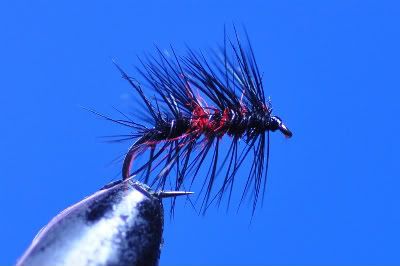
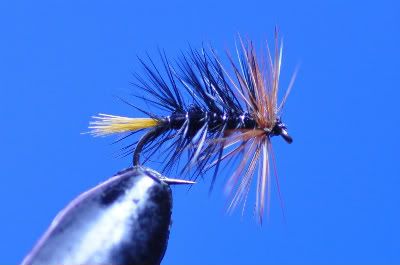 Stacks of enquiries on "Flyfishing for Coarse Fish" -and I've been blown away by the enthusiasm, support and questions sent. One common theme is which flies make the best all rounders for coarse fish. If you like dry fly sport (and it's not pissing it down with rain) you really can't go wrong with a little black Klinkhamer or emerger. This one's a size 16, tied in the parachute style- very practical, easily spotted and easily stolen by any self respecting roach, rudd or chub:
Stacks of enquiries on "Flyfishing for Coarse Fish" -and I've been blown away by the enthusiasm, support and questions sent. One common theme is which flies make the best all rounders for coarse fish. If you like dry fly sport (and it's not pissing it down with rain) you really can't go wrong with a little black Klinkhamer or emerger. This one's a size 16, tied in the parachute style- very practical, easily spotted and easily stolen by any self respecting roach, rudd or chub:
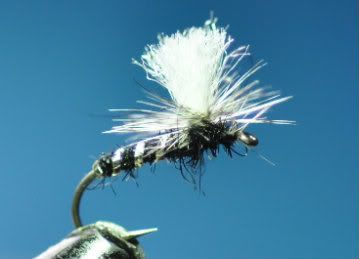 Buzzers are another universal for so many fish species- but again, smaller is better for roach and rudd. This one's more trout scale at a size 10, destined for an afternoon on Chew and -touch wood!- some trout cruising the upper layers:
Buzzers are another universal for so many fish species- but again, smaller is better for roach and rudd. This one's more trout scale at a size 10, destined for an afternoon on Chew and -touch wood!- some trout cruising the upper layers:
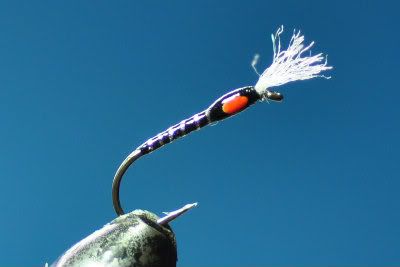 For those who don't tie, or want to leave the hassle with someone else, don't be afraid to give me a shout. I seem to be tying more and more pike and coarse fish flies, especially in the sizes and patterns the shops don't sell.
For those who don't tie, or want to leave the hassle with someone else, don't be afraid to give me a shout. I seem to be tying more and more pike and coarse fish flies, especially in the sizes and patterns the shops don't sell.







